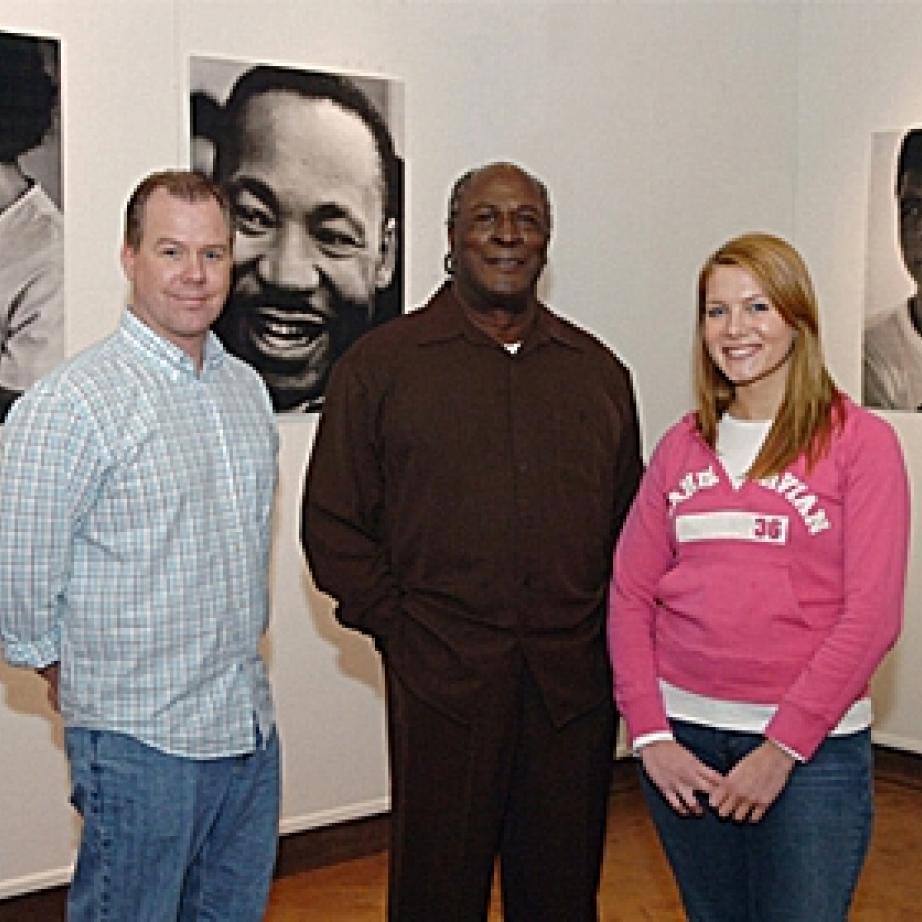Thursday, Jan 26, 2012
The Museum of Tolerance in New York will present a screening of “Stills of the Movement: The Civil Rights Photojournalism of Flip Schulke,” a documentary detailing the career of the preeminent Civil Rights photojournalist, on February 2 to honor Black History Month.
by Sean Ramsden
The Museum of Tolerance in New York will present a special film screening of Stills of the Movement: The Civil Rights Photojournalism of Flip Schulke, a 32-minute documentary detailing the career of the legendary Civil Rights photojournalist, on Thursday, February 2, at 7 p.m. in honor of Black History Month.
The film will be followed by a discussion and a lively Q&A session with its co-producers, Dr. Shawn Kildea ’93, an assistant professor of Communication at Rider, and Patty Wittenburg ’09, as well as Dr. Larry Spruill, a professor of History at Morehouse College in Atlanta. Spruill, who knew Schulke personally, wrote his authoritative doctoral dissertation on photojournalism and the Civil Rights Movement. The discussion will be moderated by Dr. David Greenberg, a professor of Media History at Rutgers University.
Space for the screening is limited, and attendees must RSVP by calling 212-697-1180, ext. 102. Tickets are $8 for members, and $10 for non-members. The Museum of Tolerance, part of the Simon Wiesenthal Center Museum, is located at 226 E. 42nd St., between 2nd and 3rd Avenues, in Manhattan.
A friend and confidante of Dr. Martin Luther King Jr., Graeme “Flip” Schulke gave people from every corner of America a glimpse into the struggles of African-Americans to attain equality in the turbulent 1960s. Schulke had established a friendship with King then extended back to 1958, when he was sent to photograph King for a story in Ebony magazine. In Stills of the Movement, narrator John Amos details an exchange between King and Schulke in March 1965, toward the beginning of the march on Birmingham, Ala., from Selma.
As Amos tells the story, police were beating a child with a club, and Schulke stepped in to pull back an officer’s weapon when King said to him, “We as a people have been beaten down and murdered for hundreds of years. Your job is to document what is happening to us. You cannot be a participant.”
Schulke was the only photographer who managed to be present at the home and at the funeral of slain civil rights leaders Medgar Evers in 1963, following his assassination by Ku Klux Klan member Byron De la Beckwith. “Evers’ widow, Myrlie, wrote that when she saw Schulke there, she was angry to see not only a photographer there, but a white one,” Wittenburg explained. “However, when Schulke lowered his camera, Myrlie saw his tears, and all her hate of white people left her body at that moment.”
Schulke earned further renowned for his iconic shot of Muhammad Ali, clad only in boxing trunks, shadowboxing at the bottom of a swimming pool. He was also one of the first photographers admitted into the Texas Book Depository in Dallas following the assassination of President John F. Kennedy.
Stills of the Movement has been screened at a number of institutions, including Morehouse and the University of Miami during the film school’s Communication Week, as well as at the prestigious Cannes Film Festival in France.
The documentary was also shown at the University of Alabama when Kildea traveled there as a William Randolph Heart Scholar in Residence. Kildea’s three-day visit to the flagship campus of the state university system in September 2010 included guest lectures in journalism classes, including one in Documenting Justice.

